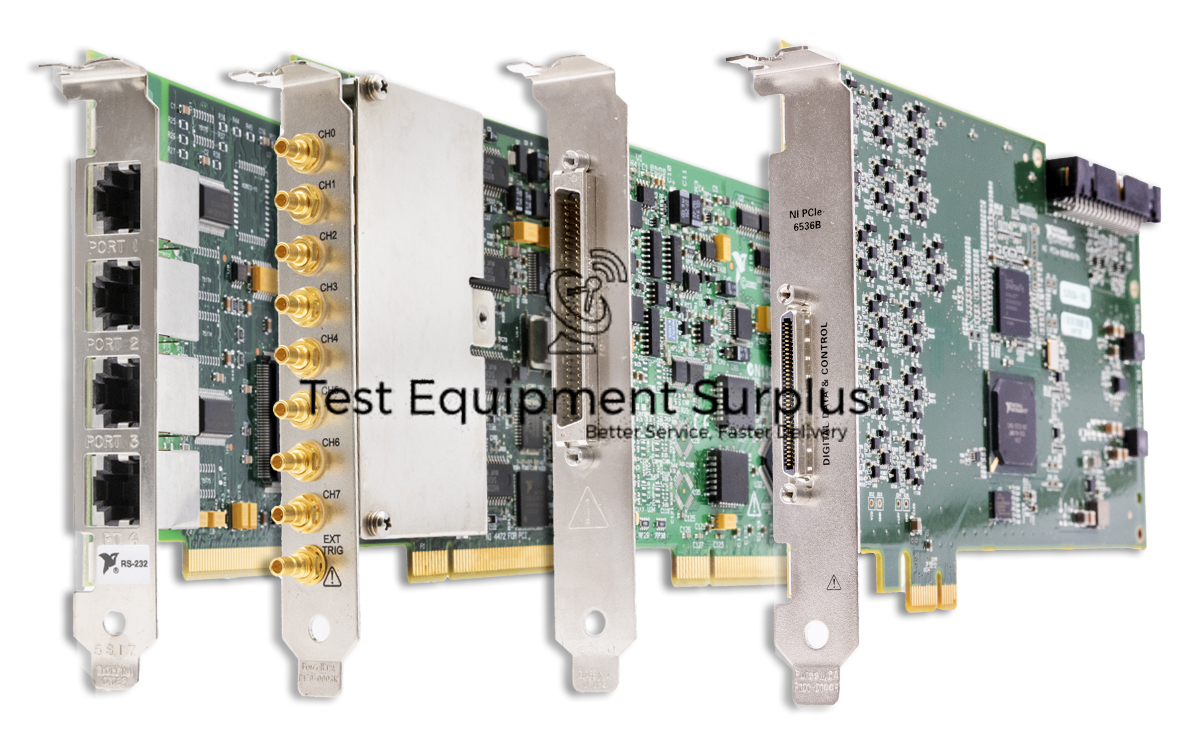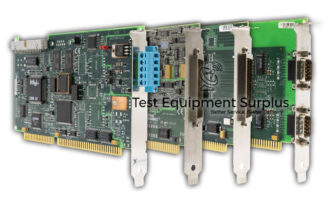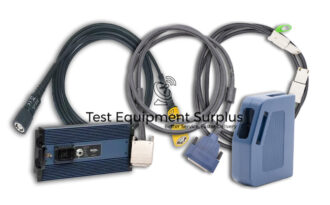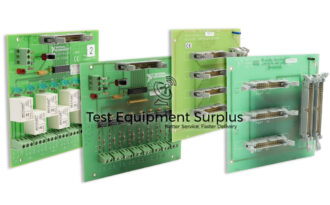Description
The National Instruments PCI-CAN/SW CAN Interface Device, part number 778795-01, is a robust single-wire CAN interface device that employs a Philips SJA1000 CAN Controller for reliable performance. It is designed to support various filtering modes, ensuring flexibility in data management.
One of the key features of this device is its ability to synchronize with other PCI devices via an RTSI bus, enhancing its integration capabilities. The hardware includes essential features such as hardware timing, timestamping, and synchronization, which are critical for precise data logging and signal processing.
Equipped with a single port and the option for a dual-port version under a different part number, the PCI-CAN/SW offers versatility for different system requirements. It uses a male DB-9 connector for interfacing and an AU5790 transceiver to maintain high-speed communications with a maximum transfer rate of 83.333 kb/sec.
With a current draw of 750 mA for the I/O channel and a power requirement of +5 VDC, it is both efficient and powerful. Its noise filtering capability is FCC Class A verified, ensuring high-quality signal integrity.
This device can operate in multiple modes—including normal, high-speed, sleep, and wake-up transceiver mode—to accommodate a wide range of operational scenarios. It is compatible with both standard and extended CAN arbitration IDs, making it an adaptable choice for automation, research, and automotive CAN-based network applications.
| Specification | Detail |
|---|---|
| Product Name | National Instruments PCI-CAN/SW CAN Interface Device |
| Part Number | 778795-01 |
| Type | Single-wire CAN Interface Device |
| Controller | Philips SJA1000 CAN Controller |
| Filtering Modes | Various |
| RTSI Bus Synchronization | Supported |
| Features | Hardware timing, Timestamping, Synchronization |
| Ports | Single port, Dual port version available with different part number |
| Connector | Male DB-9 |
| Transceiver | AU5790 |
| Max Transfer Rate | 83.333 kb/sec |
| Current Draw (I/O Channel) | 750 mA |
| Power Requirement (I/O Channel) | +5 VDC |
| EMC | FCC Class A Verified |
| Operating Modes | Normal, High-speed, Sleep, Wake-up transceiver mode |
| Arbitration IDs | Standard and Extended CAN arbitration IDs |
Question 1: What are the data management flexibility options provided by the Philips SJA1000 CAN Controller in the National Instruments PCI-CAN/SW CAN Interface Device?
Answer 1: The National Instruments PCI-CAN/SW CAN Interface Device is capable of a maximum data transfer rate of 83.333 kb/sec, and its adaptability for different applications is enhanced by its ability to operate in multiple modes, including normal, high-speed, sleep, and wake-up transceiver modes, which allow it to accommodate a wide range of operational scenarios in automation, research, and automotive CAN-based network applications.
Question 2: What is the data transfer rate capability of the National Instruments PCI-CAN/SW CAN Interface Device, and how does its various operational modes enhance its adaptability for different applications?
Answer 2: The Philips SJA1000 CAN Controller in the National Instruments PCI-CAN/SW CAN Interface Device provides data management flexibility through various filtering modes that allow for tailored data handling to suit different application requirements.
Question 3: What features does the National Instruments PCI-CAN/SW CAN Interface Device employ to ensure precise data logging and signal processing for automation and automotive applications?
Answer 3: The National Instruments PCI-CAN/SW CAN Interface Device supports multiple operational modes, including normal, high-speed, sleep, and wake-up transceiver modes, which enhances its versatility, making it suitable for a wide range of CAN-based network applications in automation, research, and automotive sectors by accommodating various operational scenarios and ensuring reliable performance across different system requirements.
Question 4: What are the different operational modes supported by the National Instruments PCI-CAN/SW CAN Interface Device, and how does its versatility make it suitable for various CAN-based network applications?
Answer 4: The National Instruments PCI-CAN/SW CAN Interface Device, part number 778795-01, benefits data management and system integration in CAN-based network applications by offering a robust single-wire interface with a Philips SJA1000 CAN Controller for reliable performance, various filtering modes for flexibility, synchronization with other PCI devices via an RTSI bus for enhanced integration, as well as essential features such as hardware timing, timestamping, and synchronization for precise data logging and signal processing. Its compatibility with both standard
Question 5: What are the benefits and capabilities of the National Instruments PCI-CAN/SW CAN Interface Device, part number 778795-01, for data management and system integration in CAN-based network applications?
Answer 5: The National Instruments PCI-CAN/SW CAN Interface Device incorporates a Philips SJA1000 CAN Controller, supports various filtering modes, and offers synchronization with other PCI devices via an RTSI bus, along with hardware timing, timestamping, and synchronization features, to ensure precise data logging and signal processing for automation and automotive applications.




